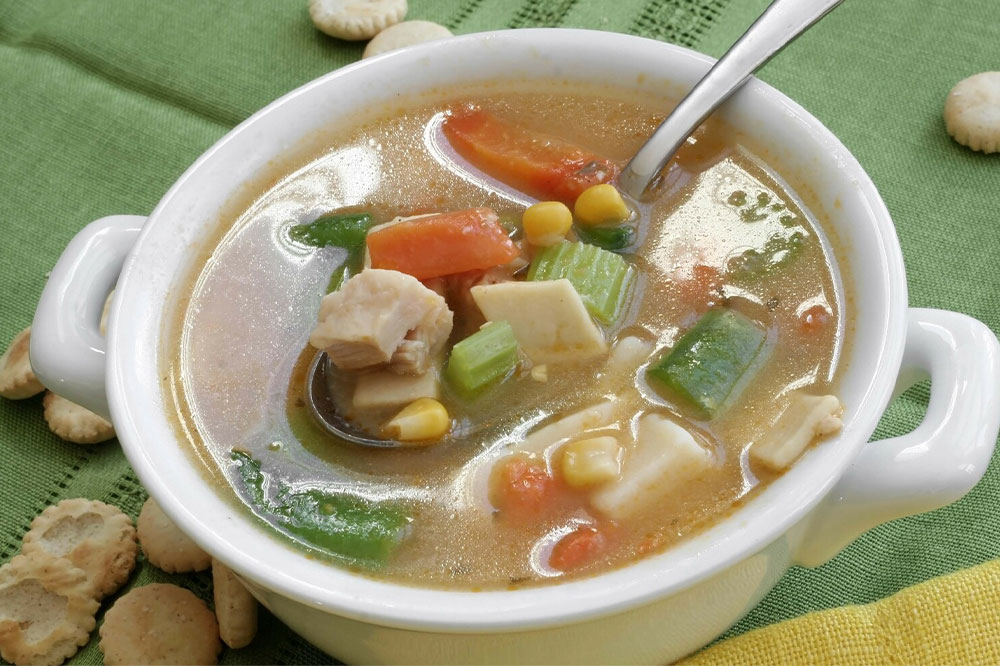6 foods to eat when running a fever

When one feels under the weather, eating the right foods may help provide relief. Even though an appetite may be close to nonexistent, one should not remain hungry, as fever burns more calories than the body does on a daily basis. Plus, when fighting off an infection, the body requires more nutrients and energy to strengthen the immune system. Hence, one must eat right and avoid certain food items to regain the lost strength.
Fever – Top 6 foods to eat
Even though one might not be in the mood or have an appetite when sick, one must eat nutrient-rich food to get stronger. Some of the best foods to eat during a fever are:
Chicken soup
A go-to meal during sickness, chicken soup has been consumed for generations. It’s not only easy to eat but also contains calories, vitamins, and minerals that the body needs while recovering from an illness. Furthermore, chicken soup is also a great source of liquids and electrolytes, which can be helpful if one is at risk of dehydration due to fever. Moreover, the broth is rich in collagen, which may promote recovery.
Coconut water
One of the ideal beverages to consume when sick, coconut water contains electrolytes which are needed along with fluids when one is sweating, vomiting or running a fever. Additionally, coconut water also has natural sugar, which may serve as a quick and easy-to-use energy source for the body.
Lemons
Citrus fruits such as lemons and oranges are rich in flavonoids and Vitamin C. These may help decrease inflammation and boost immunity, which may help fight against fever. In addition, lemons also aid in the prevention of heat strokes, and the sugar in lemonade helps maintain glucose levels while running a fever.
Greek yogurt
Some fermented foods, such as yogurt, contain probiotics, which enhance the gut microbiome and aid the healing process. Moreover, yogurt is also a rich source of protein, so if one does not have an appetite, one can still get a lot of nutrients from a small amount of greek yogurt. In addition, yogurt does not make one feel nauseated like other protein-rich foods.
Soft boiled rice
Rice is easily digestible and is a good source of carbohydrates. Hence, it can be eaten to provide more energy to the body. Moreover, it’s bland, and the water can also be used to prepare hydrating drinks for later consumption. However, one must ensure that the rice is overcooked and soft to aid digestion.
Tea
Tea is an immediate remedy for many symptoms accompanied by the cold and flu. The beverage acts as a natural decongestant and even helps a person stay hydrated throughout the day. Moreover, tea also contains polyphenols, a natural substance found in plants. This substance holds many health benefits, including anti-inflammatory and antioxidant properties that may help with the fever.
In addition to the above, patients are also advised to stay hydrated and take plenty of rest. This aids the healing process and may increase the chances of a speedy recovery. Even though food cannot cure an illness, avoiding certain foods such as cookies, ice cream, candy, sausages, hot dogs, and bacon can strengthen the immune system and aid recovery.

